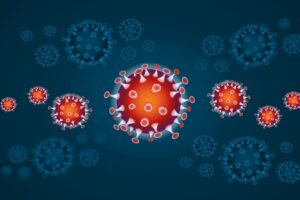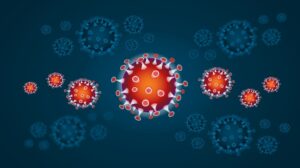Boost Your Defenses: 10 Natural Ways to Strengthen Your Immune System
The immune system is our body’s natural defense mechanism against pathogens, infections, and diseases. In the rapidly evolving landscape of public health, a strong immune system is more crucial than ever. While medical science offers vaccines and antiviral medications, maintaining overall health through natural means has been emphasized for centuries. This article will explore ten effective, natural ways to strengthen your immune system, supported by scientific literature.
1. Prioritize a Balanced Diet
A nutrient-dense diet forms the foundation of a robust immune system. Foods rich in vitamins and minerals are essential for the optimal functioning of immune cells. A study published in Nutrients underscores that vitamins such as A, C, D, and E, along with minerals like zinc and selenium, play vital roles in immune health[^1].
Key Nutrients:
-
Vitamin C: Found in citrus fruits, berries, and leafy greens, vitamin C boosts the production of white blood cells (WBCs).
-
Vitamin D: Often acquired from sunlight, it regulates immune responses. Low levels of vitamin D have been linked to increased susceptibility to infections[^2].
-
Zinc: This mineral is crucial for the development of immune cells and can be found in meats, shellfish, legumes, and seeds.
- Antioxidants: Foods high in antioxidants, such as berries, nuts, and green tea, help combat oxidative stress that can weaken immune function.
2. Stay Hydrated
Hydration is vital for overall health, including the immune system. While the exact amount varies by individual needs, a general rule of thumb is to drink at least eight 8-ounce glasses of water per day. According to the American Journal of Clinical Nutrition, adequate hydration supports cellular functions and the body’s ability to ward off infections[^3].
Benefits of Hydration:
-
Flushes Toxins: Water helps eliminate toxins and waste products, allowing the body to function optimally.
- Supports Mucosal Immunity: Proper hydration maintains mucosal membranes, which are the body’s first line of defense against pathogens.
Tips for Staying Hydrated:
- Carry a reusable water bottle.
- Infuse water with fruits for added flavor and nutrients.
- Drink herbal teas, which can also provide additional antioxidants.
3. Regular Exercise
Physical activity is not only beneficial for physical health but also for emotional well-being and immune function. Research in JAMA Internal Medicine suggests that regular, moderate exercise enhances immune function by promoting good circulation and facilitating the movement of immune cells throughout the body[^4].
Types of Exercise:
- Aerobic Activities: Include walking, running, swimming, or cycling.
- Strength Training: Resistance exercises improve muscle mass and metabolism, contributing to overall health.
- Yoga and Mindfulness: These practices help reduce stress, which can depress immune function.
Recommended Frequency:
Aim for at least 150 minutes of moderate aerobic exercise or 75 minutes of vigorous exercise weekly, coupled with two days of strength training.
4. Manage Stress
Chronic stress can wreak havoc on the immune system. High levels of stress hormones, particularly cortisol, can impair immune responses. According to a study published in Brain, Behavior, and Immunity, stress heavily influences immune cell functioning and response[^5].
Stress Management Techniques:
-
Mindfulness and Meditation: Regular practice can reduce stress levels and improve immune function.
-
Deep Breathing Exercises: Simple breathing techniques can alleviate acute stress.
- Physical Activity: Regular exercise can serve as a natural stress reliever.
Journaling and Creativity:
Engaging in creative outlets like writing, painting, or playing music can also serve as an effective method of stress relief.
5. Sleep is Non-Negotiable
Quality sleep is essential for maintaining a strong immune system. Research published in the journal Sleep indicates a direct relationship between sleep duration and immune function. Poor sleep can lead to a lack of immune response and heightened susceptibility to illness[^6].
Sleep Recommendations:
- Aim for 7-9 hours of sleep per night, depending on individual needs.
- Consistent sleep schedule: Go to bed and wake up at the same time each day.
Sleep Hygiene Practices:
- Create a restful sleeping environment with minimal light and sound.
- Limit screen time before bed to reduce blue light exposure.
6. Consider Probiotics
Emerging research shows that gut health is closely tied to immune function. Probiotics, beneficial bacteria found in fermented foods, can enhance gut health and subsequently improve the immune response. A review in the Frontiers in Immunology highlights this connection, asserting that a healthy gut microbiome is vital for immune responses[^7].
Dietary Sources of Probiotics:
-
Fermented Foods: Yogurt, kefir, sauerkraut, kimchi, and kombucha.
- Probiotic Supplements: Can be an option but should be chosen carefully.
Prebiotics vs. Probiotics:
Prebiotics (found in fiber-rich foods) feed probiotics and help maintain a balanced microbiome. Foods like garlic, onions, and bananas are excellent prebiotic sources.
7. Limit Alcohol Consumption
Excessive alcohol consumption can impair immune function. A study in Alcohol Research shows that heavy drinking can restrict the proliferation and functioning of immune cells, leaving the body vulnerable to infections[^8].
Guidelines for Moderate Drinking:
- For women, limit to one drink per day.
- For men, limit to two drinks per day.
Focus on Healthy Alternatives:
Explore non-alcoholic beverages, such as herbal teas or flavored sparkling water, which can keep hydration levels up without the negative effects of alcohol.
8. Herbal Remedies
Herbal supplements have gained popularity for their perceived immune-boosting properties. A variety of herbs have been studied for their effects on immune health. A systematic review in the Journal of Ethnopharmacology discusses the potential immune-enhancing properties of various plants[^9].
Notable Herbs:
-
Echinacea: Widely believed to stimulate immune function and may reduce the severity of colds.
-
Elderberry: Contains antioxidants that may support immune health, especially during the cold season.
- Garlic: Known for its antimicrobial properties; fresh garlic consumption may enhance the immune response.
Caution and Consultation:
Always consult healthcare professionals before starting new herbal supplements, especially if you are on other medications.
9. Maintain a Healthy Weight
Obesity is associated with an increased risk of infections and immune dysfunction. A review in Nature Reviews Immunology indicates that excess body fat can lead to chronic inflammation, which impairs immune responses[^10].
Strategies for Maintaining a Healthy Weight:
- Focus on whole, unprocessed foods rich in nutrients.
- Engage in regular physical activity.
- Practice mindful eating to foster a healthy relationship with food.
Setting Realistic Goals:
Weight management is a long-term commitment. Setting achievable goals fosters sustainable changes in diet and activity levels.
10. Foster Social Connections
Social interactions can influence our psychological and physiological health. Research featured in Psychological Science suggests that supportive social networks can enhance immune responses and lead to better overall health[^11].
Building Connections:
- Quality over Quantity: Focus on meaningful relationships that provide emotional support.
- Community Involvement: Volunteering or joining groups can expand your social circle and strengthen ties.
Digital Connections:
In today’s world, virtual connections can also offer emotional support and help combat isolation, especially during challenging times.
Conclusion
Boosting your immune system doesn’t require a pharmacy full of prescriptions; small, natural changes can make profound differences. By fostering a holistic approach—through nutrition, exercise, hydration, stress management, sleep, and social connections—you can significantly enhance your body’s defenses. Remember, it’s not just about avoiding illness; a strong immune system contributes to overall well-being and a higher quality of life. Always consult with healthcare professionals before making significant changes to your health regimen.
References
[^1]: Nutrients. (2017). The Role of Micronutrients in the Immune System. [^2]: Healthline. (2020). The Importance of Vitamin D for Immune Health. [^3]: American Journal of Clinical Nutrition. (2010). Hydration and the Immune System. [^4]: JAMA Internal Medicine. (2015). Exercise and Immune Function. [^5]: Brain, Behavior, and Immunity. (2012). Psychological Stress and Immunity. [^6]: Sleep. (2015). Sleep Duration and Immune Function. [^7]: Frontiers in Immunology. (2018). The Gut Microbiome and Immune Function. [^8]: Alcohol Research. (2019). Alcohol Consumption and Immune Function. [^9]: Journal of Ethnopharmacology. (2017). Herbal Medicine and Immune Health. [^10]: Nature Reviews Immunology. (2016). Obesity and Immune Dysfunction. [^11]: Psychological Science. (2013). Social Relationships and Immune Function.By integrating these ten natural strategies into your lifestyle, you can craft a multi-faceted approach to immune health that sustains you in both wellness and adversity. A robust immune system not only shields against infections but also fosters resilience, allowing you to thrive in today’s complex world.


























Add Comment